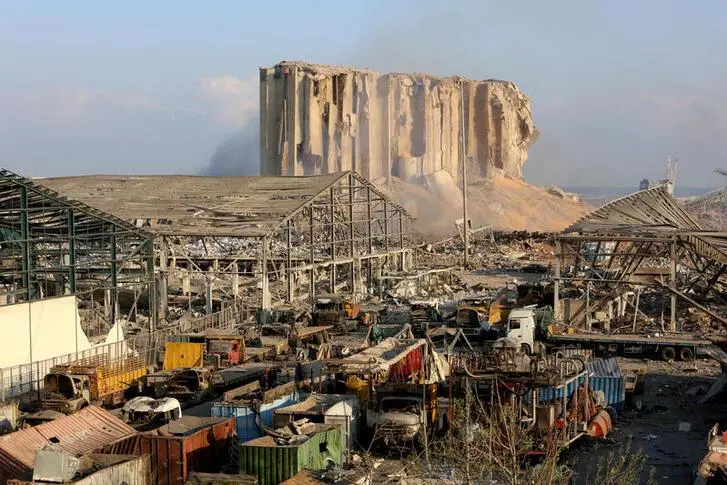PHOTO
BEIRUT: The cause of the Beirut port explosion needs two more months to be determined, the lead investigator into the probe said Thursday, days after receiving fresh evidence from a French report.
Judge Tarek Bitar, speaking during a meeting with journalists at the Justice Palace, said that he needed two more months to verify the cause of the blast to which there are three possible theories.
The first is the possibility of a mistake in the welding process that led to the start of a fire, which caused the explosion; the second is that an intentional fire was caused which led to the disaster; and the third theory is that the explosion was caused by a targeted air rocket attack.
The Aug. 4 explosion, which occurred when 2,750 tons of ammonium nitrate caught fire and detonated, killed more than 200 people, injured 6,000 and ripped apart swaths of the capital.
Bitar added that the new French report into the explosion, handed to him Monday, and which was conducted three weeks after the incident by French experts, has led to one of the theories being 80 percent discounted, but he did not reveal which.
Work is underway to finalize between the remaining two theories.
Since the investigation began, it has been blighted by uncooperative parties, and also delayed by a change of judge six months in. Judge Fadi Sawwan was removed in February following demands from senior politicians accused in the probe.
Bitar also questioned seven employees of the Al Maqmah warehouse at the port who were on site during the explosion. Their testimonies are very important because they were at the crime scene, he said.
Commenting on the likelihood of a targeted air attack as a theory, Bitar stressed that the matter was under intense investigation.
This theory is based on three factors: The first is the testimony of witnesses and whether they saw warplanes or a missile fall, the second is access to satellites, and the third is soil analysis to see whether there were any traces of gunpowder or other explosive material.
The blast is believed to be the biggest non-nuclear explosion in history, and was caused by highly explosive material fertilizer that had been offloaded from a cargo ship and stored in a warehouse at the port since 2014.
Despite the worldwide shock and level of devastation the incident generated, families of those killed have expressed concern that those responsible will never be brought to justice, citing the systemic corruption that has plagued the country for decades.
Caretaker Prime Minister Hassan Diab, along with former public works ministers Ghazi Zaeiter and Youssef Fenianos, and former Finance Minister Ali Hassan Khalil, have been summoned for questioning on suspicion of criminal negligence that led to the explosion, but all have denied involvement.
Diab promised in August that the catastrophe would not pass without accountability.
Copyright 2021, The Daily Star. All rights reserved. Provided by SyndiGate Media Inc. (Syndigate.info).





















